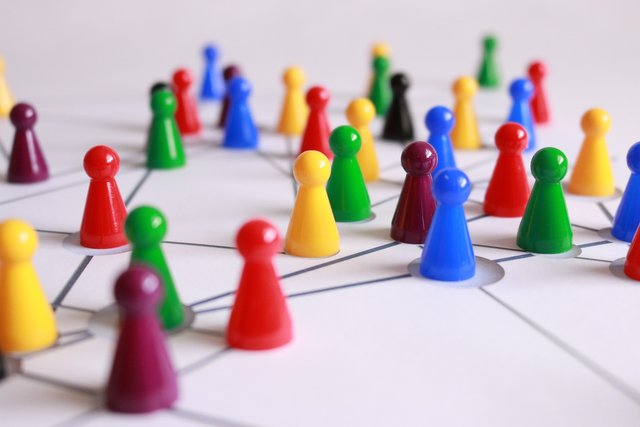More of a rant than originally intended.

Well, it’s certainly been a busy couple of weeks for me, hence the lack of posts from me here. From that ongoing mountain of assignments that always seems to need grading, to being selected as a first generation ONO Super Partner, it’s been a crazy time. (On that note, there are a few Super Partner places left, so if you are interested, please come and find me or one of the other volunteers in https://t.me/ONOUS.) I have a lot of catching up to do, especially with the @comedyopenmic community that has supported me through my ongoing delusion that I’m occasionally funny.
As I read essays on ethical dilemmas and what teachers can do to help build a better society (along with how and why they should do so), and watching the ponderous movements of wealth as the leviathans of cryptocurrency lumber along, I’m again struck by how different people’s experiences of abundance and scarcity are. I am also aware that much is not what it seems, and that the debate over whether power centralisation is really that different to wealth concentration has yet to really get the attention it deserves.
I think back to the things I read in my first years at university. Namely, John Rawls, who argued that inequality is not necessarily a good thing, and that in a rational society being built from scratch, we would set things up without bias or favouritism, so that anyone could have the same shot at being wealthy, famous, or a leading expert in any field, and that this (as much as was practical) would apply to all - no matter how rich or poor your parents were. Such things, ideally, would be determined by ability and hard work, not the luck of the socioeconomic/geographic/genetic lottery of birth.
Of course, societies aren’t actually built from scratch. So, the best we can do in real life is try to mitigate the worst excesses of greed by putting these baser instincts to work by attaching high salaries to vocations and professions that benefit society and humanity. We may even generally try to reign in the tendency towards coercion and threats of violence that individuals and organisations (both government and corporate) try to use to get their way.
But in setting up new digital societies, we don’t have to make the same mistakes, and we have a chance to experiment with ways of interacting that don’t automatically make the rich richer while the poor fight for the crumbs that fall from their tables.
We have the chance to look at what we are building, pause for a moment, and think about what we are doing. Are we building a feudal society, where the founders become a new nobility, with wealth and influence and freedom that the ordinary latecomer can never match? Or do we want to build something stronger, fairer, and more inclusive?
For all that there is a tendency to treat the network one creates as a digital fiefdom or passive cash-cow, these approaches may not last. There is a reason we have few absolute monarchies or feudal societies any more. They don’t work. People, if they are poor enough, and angry enough, and feel sufficiently unappreciated by their ‘betters’, have been intolerant of such treatment over the past few hundred years.
Think about this when you vote for witnesses or politicians (or Super Partners). Think about it when you decide which network to support. Think about it when you fortify your position as an early adopter, or take advantage of a ninja mine, or watch people struggle for pennies while you generate generous passive income from your early investment. Think about how this seems to those who come after you, those who aren’t doing so well with the new reality that combines digital hustling with crushing economic precariousness. Because they will be thinking about it when they see your generous post payouts and full wallet.
This might seem overly dramatic. But economic inequality is not a game when people rely on the money they earn. And the impact of how things like steem, EOS, ONO, and future projects yet unnamed are structured and governed will only grow over time. Whether they are fully decentralised, hybrid decentralised autonomous organisations, or simply the playthings of a handful of whales, once the real economies of scale kick in, and there is more than attention being traded, these networks and blockchains could become drivers of the economy equal to any corporation we are familiar with today.
When a whale on a blockchain has more potential impact on a person's life than their government, this will all suddenly seem important, and we might wish we’d thought a little harder about what we were building. Like I said, we have that chance, right now. Let’s not blow it.
Thanks for reading.

Custom footer by @bearone.
Well said. I don't have anything insightful to say, because I am really overtired, but bravo.
Congratulations! This post has been upvoted from the communal account, @minnowsupport, by SamD (at samueldouglas) from the Minnow Support Project. It's a witness project run by aggroed, ausbitbank, teamsteem, theprophet0, someguy123, neoxian, followbtcnews, and netuoso. The goal is to help Steemit grow by supporting Minnows. Please find us at the Peace, Abundance, and Liberty Network (PALnet) Discord Channel. It's a completely public and open space to all members of the Steemit community who voluntarily choose to be there.
If you would like to delegate to the Minnow Support Project you can do so by clicking on the following links: 50SP, 100SP, 250SP, 500SP, 1000SP, 5000SP.
Be sure to leave at least 50SP undelegated on your account.